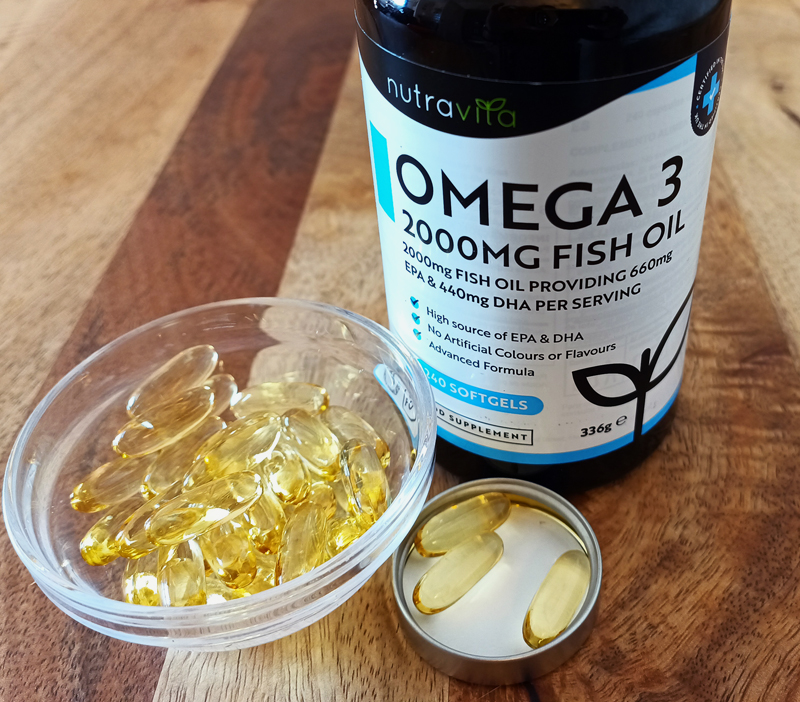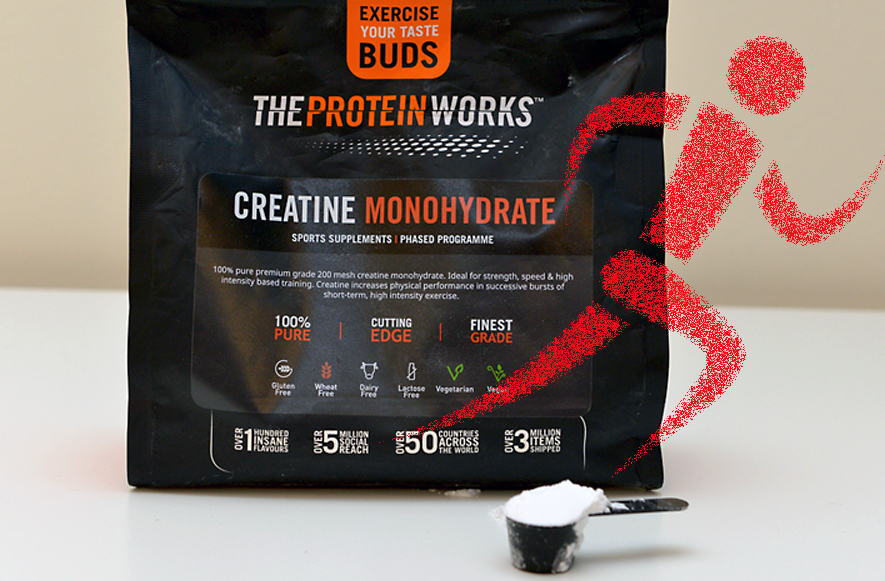Athletes and omega-3: what you need to know for performance!
Andrew Sheaff looks at new research summarizing the latest thinking on omega-3 essential fats consumption and athletic performance
From relative obscurity a couple of decades ago, omega-3 fatty acids are now one of the most commonly used health supplements. These are essential fatty acids that are necessary for many aspects of human health. Importantly, they have to be consumed in the diet because we can’t make them ourselves. The most common source of omega-3 fatty acids is fish, and it’s also one of the most bioavailable sources. Because of this, omega-3s are often referred to as ‘fish oils’.
While omega-3s known for the positive impact they can have on different aspects of wellbeing including cardiovascular health, they’re also emerging as a nutrient that may be of particular benefit for athletes. The International Society of Sports Nutrition recently released a position paper that outlined 10 key points related to omega-3 supplementation and exercise performance, recovery, and brain health(1). In this article, we’ll summarize these key points to help you make an informed decision as to whether omega-3 fatty acid supplementation could enhance your sporting endeavors.
1. Athletes may not be getting enough omega-3s
The authors mentioned one particular study involving NCAA Division football players. Omega-3 status was assessed by a blood measure known as the omega-3 index (O3I). This measures what percentage of the fatty acids in blood cells are composed of omega-3s. A value of 8% is considered to be optimal for cardiovascular health, and not a single player out of 404 subjects reached that threshold. Even worse, the average omega-3 index score was 4.4%, potentially putting many of the players at risk for cardiovascular disease later in life. It’s not immediately clear if this is reflective of the demands of sport or the nutritional choices of athletes. Regardless, it presents an opportunity for athletes to improve their health and performance.
2. Consuming omega-3s increases omega-3 levels in the body
While levels of omega-3 may be insufficient in many athletes, the good news is that increasing omega-3 levels is relatively straightforward. The solution is to consume fatty fish or consume omega-3 supplements derived made of fish oil. The authors cited salmon, mackerel, trout, sardines, and sea bass as good whole food sources of omega-3s. From a supplemental perspective, salmon oil, mackerel oil, anchovy oil, and cod liver oil are effective options. While these can be purchased separately, they’re typically combined in a generic fish oil. Krill oil supplements can be effective as well. For vegetarian athletes, algal oil is a good source of omega-3 fatty acids and appears to be similarly effective at raising omega-3 levels in the body.
3. Omega-3 supplements can enhance aerobic performance during endurance exercise
There is significant emphasis that increased levels of omega-3 can positively impact different aspects of endurance performance. When higher levels of omega-3 are consumed, the fatty acids are incorporated into the muscles, the mitochondria, and the heart, all positively impacting endurance performance. Research has shown that high doses of omega-3 can lead to improvements in running economy as well as V02peak. There is also evidence that supplementation can positively impact endothelial function, or the function of the blood vessels, which is critical for endurance performance. Further studies have shown decreased heart rates during exercise tests to exhaustion, as well as reduce oxygen demand at the same workload. Impressively, many of these studies showing performance benefits have been relatively short-term in duration, with omega-3 supplementation occurring for only a matter of weeks.
4. Omega-3 does not appear to enhance hypertrophy in young adults
There is a lot of evidence in rodent data indicating that omega-3 fatty acids can have a positive impact on the mechanisms that influence muscle hypertrophy (growth). Also, there are several studies that have confirmed these effects in older adults by demonstrating positive effects on skeletal muscle. When it comes to younger individuals however, multiple studies have failed to replicate the findings in older adults. Of the eight studies covered in the paper, only one demonstrated a significant increase in fat-free mass. It is important to note that these were training studies, and the subjects were specifically performing resistance training. While more research is needed to continue to clarify the impact of omega-3s on hypertrophy with young adults, the current research does not suggest a benefit.
5. There is a potential strength benefit when omega-3s are combined with resistance training
Whereas the data for hypertrophy is not particularly promising, the evidence for a positive impact of omega-3s on muscular strength is much stronger. There appears to be a relationship between omega-3 levels in the body and various measures of strength. Dietary intakes are also linked to measures of strength. This has been shown to be true for various strength tests including hand grip strength, leg press, and knee extension. Multiple trials have also shown that strength improves more when resistance training is combined with omega-3 supplementation. Because it takes at least four weeks before extra omega-3 consumed in the diet can be fully incorporated into muscles, the benefits of omega-3 supplementation may take several months to be fully realized. This has been seen in enhanced benefits with longer trials. The authors noted that while strength tends to be positively impacted, power has not been shown to benefit from omega-3 supplementation or omega-3 status.
6. Perception of muscle soreness may be less after intense exercise with omega-3 supplementation
Omega-3s are linked with modulating inflammatory processes within the body. As a result, it makes sense that they could enhance recovery from exercise due to their anti-inflammatory effect. There are several ways to measure muscle damage. First, subjective measures of how sore individuals are after intense exercise can be used. Several (but not all) studies have shown omega-3s can reduce subjective measures of soreness, although others have not. The same is true when measuring muscle performance following intense exercise. However, the explanation for the perception of reduced muscle soreness after intense exercise following omega-3 supplementation is unclear as there is minimal evidence that markers of muscle damage in the blood are reduced following supplementation.
7. Immune responses are enhanced following omega-3 supplementation
Performing large volumes of high-intensity exercise can potentially compromise immune function. As omega-3 can positively influence the inflammatory status of the body, these fatty acids hold promise for maintaining immune function. Multiple studies have shown that subjects consuming omega-3 supplements had reduced inflammatory responses to training. While the mechanistic data is promising, at this point, further research is needed to determine if these effects lead to reduced incidences of illness.
8. Consuming omega-3 supplementation prior to head impact may be protective
Many athletes participate in contact sports, and many other athletes participate in sports where there a risk of head trauma on rare occasions. Much of the initial research on the impact of omega-3s on brain injury was performed in rodents. Following promising findings, studies have been undertaken in humans. There have been three studies investigating the impact of omega-3 supplementation when taken as a preemptive measure. While the evidence is somewhat mixed, football players taking omega-3s demonstrate lower measures of damage to the axons of neurons. One study in adolescents compared omega-3 supplementation to placebo following a concussion. Those taking supplements began the return to sport process 4.5 days before the placebo group.
9. Sleep quality is improved following omega-3 supplementation
Sleep is important for all humans, and it is particularly important for athletes who are pushing their bodies to the limit. Low levels of omega-3s in the body have been linked to disruption in the synthesis and secretion of melatonin, a key hormone associated with sleep. Low omega-3 levels have been directly tied to compromised sleep as well. Fortunately, increasing the intake of omega-3s can positively influence the time it takes to fall asleep (ie reduce it), as well as the quality of sleep. Importantly these findings have been in healthy individuals, not just those with preexisting illnesses.
10. It is unclear whether omega-3 supplementation affects the gut microbiome
Probiotics are bacteria that can positively impact bacteria levels in the gut. Omega-3s are considered to be prebiotics, or compounds that ‘feed’ bacteria that positively impact the gut. Omega-3s have been linked to improved composition of the gut microbiome, as well as the number of bacterial species present in the gut. While these are interesting findings, it’s not clear to what extent omega-3s can positively impact the gut, and what the potential benefits these changes may have to health and performance. Considering that many endurance athletes can experience gut issues during long, hard training, this is potentially important area of future research.
Practical applications for athletes
Regardless of your sporting goals, there are many ways that omega-3 fatty acids can potentially improve your performance. It’s likely that at least one potential benefit listed above is of interest to you. When it comes to increasing your omega-3 intake, you have several different options. You can choose to supplement, or you can choose to increase your intake of fatty fish. Regardless of how you to choose to consume omega-3s, it appears that they have potential to benefit your performance as well as your health.
References
1. J Int Soc Sports Nutr. 2025 Jan 15;22(1):2441775. doi: 10.1080/15502783.2024.2441775
Related Files
Newsletter Sign Up
Testimonials
Dr. Alexandra Fandetti-Robin, Back & Body Chiropractic
Elspeth Cowell MSCh DpodM SRCh HCPC reg
William Hunter, Nuffield Health
Newsletter Sign Up
Coaches Testimonials
Dr. Alexandra Fandetti-Robin, Back & Body Chiropractic
Elspeth Cowell MSCh DpodM SRCh HCPC reg
William Hunter, Nuffield Health
Keep up with latest sports science research and apply it to maximize performance
Today you have the chance to join a group of athletes, and sports coaches/trainers who all have something special in common...
They use the latest research to improve performance for themselves and their clients - both athletes and sports teams - with help from global specialists in the fields of sports science, sports medicine and sports psychology.
They do this by reading Sports Performance Bulletin, an easy-to-digest but serious-minded journal dedicated to high performance sports. SPB offers a wealth of information and insight into the latest research, in an easily-accessible and understood format, along with a wealth of practical recommendations.
*includes 3 coaching manuals
Get Inspired
All the latest techniques and approaches
Sports Performance Bulletin helps dedicated endurance athletes improve their performance. Sense-checking the latest sports science research, and sourcing evidence and case studies to support findings, Sports Performance Bulletin turns proven insights into easily digestible practical advice. Supporting athletes, coaches and professionals who wish to ensure their guidance and programmes are kept right up to date and based on credible science.










